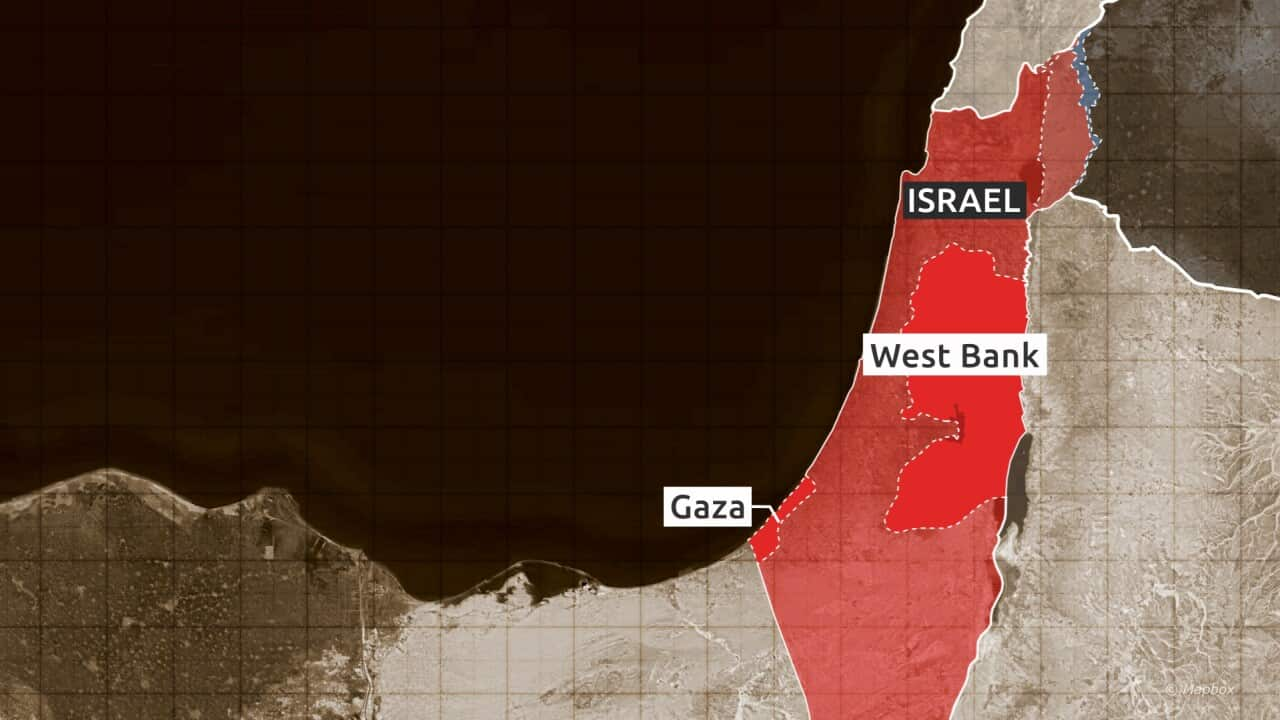Key Points
- Anthony Albanese says there is no credibility to claims members of the Australian government are complicit in genocide.
- The claims were made in a document written by a Sydney-based law firm and sent to the International Criminal Court.
- Albanese said the document contained 'misinformation'.
Prime Minister Anthony Albanese has dismissed a letter to the International Criminal Court that accuses members of federal parliament of supporting alleged war crimes in the Hamas-Israel war.
Albanese said the 92-page document, written by Sydney-based law firm Birchgrove Legal, did not have any credibility.
The law firm's communique said the government, including the prime minister, Foreign Minister Penny Wong and Defence Minister Richard Marles, as well as Opposition leader Peter Dutton, provided "explicit political, rhetorical, moral, military and material support" for alleged war crimes carried out by Israel.
Speaking to reporters in Melbourne , Albanese said it "clearly has no credibility going forward".
"I don't think that peaceful resolution is advanced by misinformation, and there has been substantial amounts of misinformation about what is occurring."
Albanese said Australia's stance on the Middle Eastern conflict was still consistent with a joint statement it had put out alongside New Zealand and Canada in February, which called for an immediate ceasefire in Gaza.
"If you go back to the resolution that was carried with the support of both major parties in October, they made it very clear that every innocent life matters, whether it's Israeli or Palestinian."
Barrister Sheryn Omeri, who is advising the legal team behind the letter, told ABC TV the government had "accessorial liability" for alleged war crimes in the Middle East.
"Between (October) and now, there has been very little in the way of urging restraint on Israel and discouraging what the International Court of Justice found on January 26 to be a plausible case of genocide," she said.
Communiques can be sent to the ICC by anyone alleging war crimes are taking place. The ICC hears claims against individuals.
States are able to 'refer' each other to the court, and these are what the ICC typically takes on as cases, professor at the University of Sydney Law School, Emily Crawford, told SBS News.
It's "highly unlikely" the ICC would pursue Birchgrove Legal's communique, let alone take it beyond the stage of preliminary examination, she said.
She said the communication is "a way of publicly clearly setting out a case that genocide is taking place and that Western governments are complicit in what's happening".
"It is essentially a political or policy way of saying to our leaders, you are nonetheless complicit in this activity and even if we can't prove it to an individual criminal degree, we can prove it from a theoretical legal perspective and therefore you should be stopping it."
Birchgrove Legal said there is a "a growing desire on the part of civil society and ordinary citizens of Western countries to ensure that their governments do not assist in the perpetration of international crimes".
It urged the court to investigate the government's decision to , and alleged it was providing military aid to Israel.
University of South Australia international law lecturer Juliette McIntyre told SBS News the allegations are about aiding and abetting a crime as opposed to committing a crime directly.
"It's still criminal, but it's not as urgent to say as the actual commission of a crime ... so it's unlikely" the ICC would pursue this before it looks at the referral five states made against Israel.
South Africa, Bangladesh, Bolivia, Comoros and Djibouti in November asked the court to investigate whether crimes have been committed in the Palestinian territories as part of Israel’s response to Hamas attacks on 7 October.
The militants militants killed around 1,160 people and took about 250 hostages, according to Israeli figures.
Israel's retaliatory air and land offensives have killed over 30,000 people according to the Gaza health ministry.
McIntyre said the communique could have symbolic power.
"I think there is a certain amount of domestic political pressure that will be brought to bear on the government as a result of this document," she said.
"What it does do is publicise a lot of information which may not have previously been known to the general public about, for example, the details of various supplied military goods to Israel."
In January, the International Court of Justice, which seeks to settle disputes between states,to prevent acts of genocide in its war on Gaza.
The court did not rule on whether or not Israel has committed genocide in Gaza — that process could take years.













